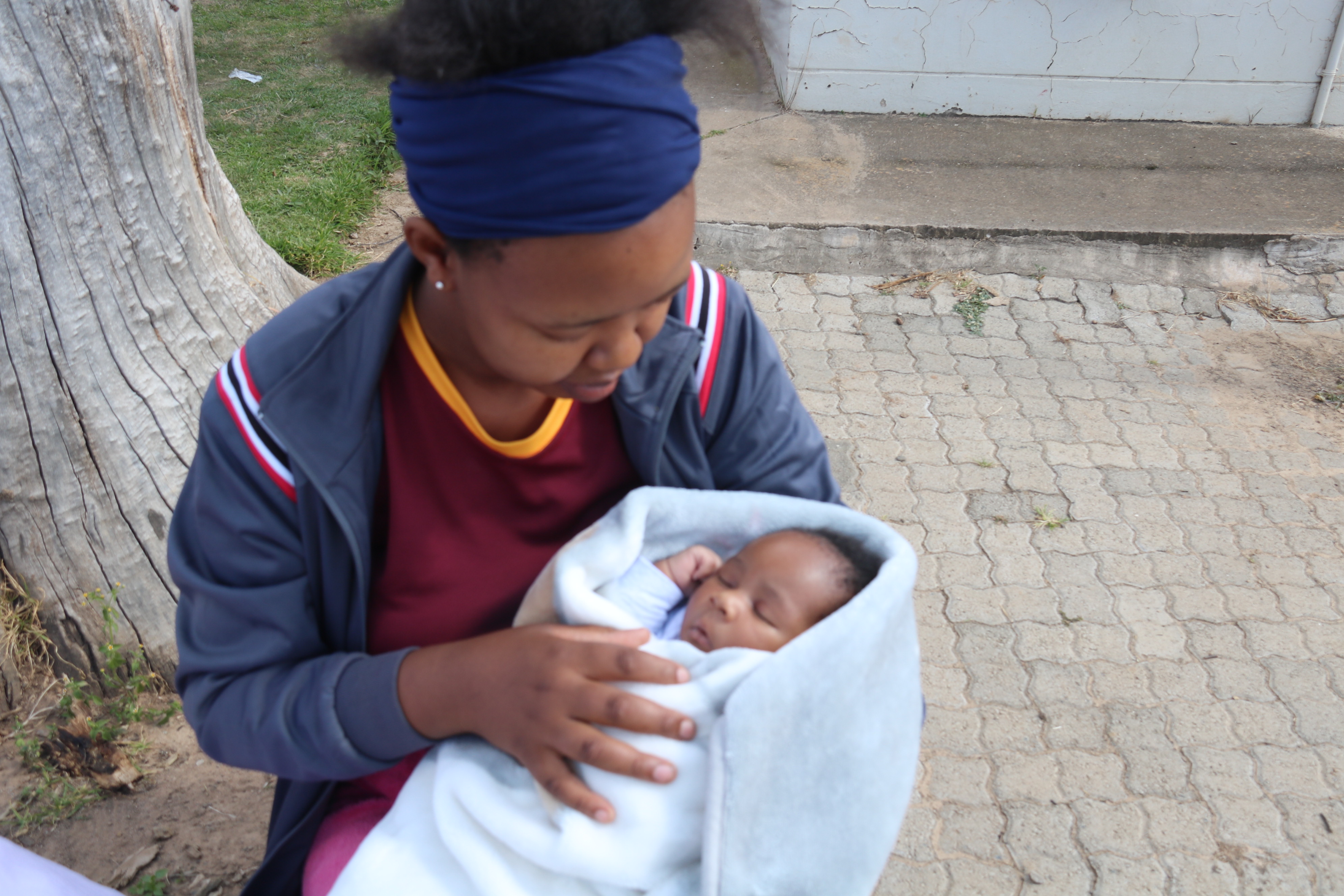“My biggest fear is seeing a woman leaving the health facility with a box containing a lifeless newborn yet she had come with new clothes for the baby,” says a Midwife at St Denis Clinic in Leribe district, Tlaleng Motaba. She prays every time she supports a woman during labour and the birthing process that the lives of both the mother and the baby would survive.
Her advice to other Midwives, in celebration of International Midwifery Day (May 5) is that they should be patient, have compassion and always properly guide the women during labour so that their lives and their babies’ lives would be spared.

UNFPA, the United Nations Population Fund commemorated this year’s midwifery day under the theme, “Actioning Evidence: Leading the Way to Enhance Quality Midwifery Care Globally.” For UNFPA, Midwives – and people with midwifery skills – are the main caregivers for women and their newborns during pregnancy, labour, childbirth and in the post-delivery period, therefore, the organization stands in solidarity with midwives worldwide and thank them for the life-saving work they do.
As the Fund’s Executive Director Dr. Natalia Kanem has reaffirmed,
“Every year on this day, we celebrate midwives for their unwavering commitment to saving lives and ensuring the health and wellbeing of women and newborn babies.In a world that sees a woman die every two minutes due to pregnancy or childbirth, we also take this moment to champion universal access to skilled midwives as one of the most important ways to avert preventable maternal and newborn deaths,” she has stated.
“If every pregnant woman had access to a well-trained, caring midwife, we would be much closer to a world where every childbirth is safe. Instead, many health systems continue to marginalize this mostly female workforce, and treat midwives poorly in terms of pay, working conditions and opportunities to cultivate skills. This, along with a global shortage of 900,000 midwives, reflects an assumption that they are not essential healthcare workers. Nothing could be further from the truth,” she has added.
Another Midwife at Ha Lejone Health Centre says her priority is also saving the lives of both the mother and the baby. Ms ‘Malefa Lekhebotsane serves women who come from the remotest areas, who sometimes have to walk for more than three hours to reach the health facility.
To other Midwives in celebration of Midwifery Day she said, “Let us always be patient. We should remember every time what we committed to when we lighted the lamp (Florence Nightingale).”
Most of the Midwives have described the joy they get after safely delivering a baby. ”There is nothing as joyful as hearing that first cry,” said a Midwife at Matlameng Health Facility, Thabo Makhakhe. “Recently I delivered a baby with breathing complications. I resuscitated him.....I will never forget the joy I felt when that baby cried,” he stated.
Despite the challenges they face, many of the Midwives have said they strive to save mothers and their babies and try by all means to avoid maternal deaths. In Lesotho, maternal mortality is estimated at 618/100 000 live births (Census 2016).
Most mothers are also grateful to Midwives for having assisted and supported them during childbirth. One of the women ‘Matiisetso Taeboso who has three children would not forget when she was in labour with her third child at Kolojane Clinic. “I was vomiting, having complications of labour and I was very miserable but that Midwife was very supportive. She was with me all the time throughout the process. When she realized that I had to be referred to Mapoteng hospital she used her own vehicle because there was not transport available at the clinic. I cannot thank her enough,” she said.
Midwives save lives. As thus, UNFPA views access to midwives as the single most important factor in stopping the preventable maternal and newborn deaths. UNFPA’s view is that access to midwives is the single most important factor in stopping preventable maternal and newborn deaths.
In Lesotho, UNFPA supports the government through the Ministry of Health in advancing the midwifery curriculum and strengthening midwifery services as a strategy of reducing maternal deaths. UNFPA also supports training of midwives, emergency obstetric and neonatal care in efforts to contribute towards ending preventable maternal deaths.


